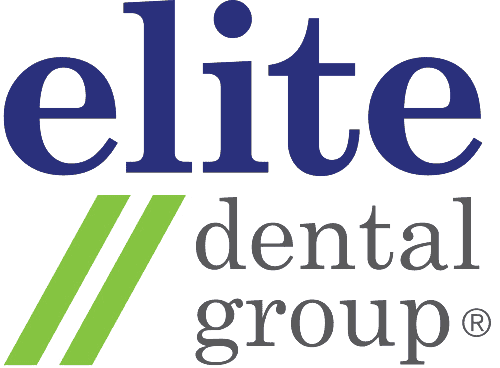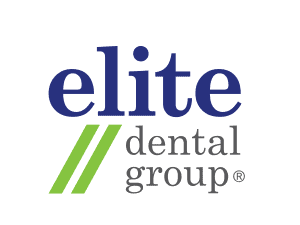28 Oct The 3 Economic Benefits of Good Oral Health
Introduction
With Liz Trussonomics and her recent resignation as the Prime Minister of the UK, we felt inspired to write a post dedicated to economics, specifically the economics of dental care, and how good oral health can lead to more savings for patients like you without having to resort to expensive dental treatments down the road.
Before you go “Economics is so boring,” I would like to present some fun dental statistics that my clinic has collected over the past few years:
- The most number of rescheduled appointments in 2019, 2021, and 2022 were for active maintenance appointments that involve the cleaning and removal of buildup from plaque and tartar.
- In 2021, we saw an increase in incidences of gradual build up of calculus and tartar from patients who had not visited a dentist for more than 2 years.
- The cost of repairing dental caries cost on average 2-10 times more annually than purchasing a decent electric toothbrush. This means brushing your teeth regularly transfers cost savings of more than $1,000 a year.
Benefits of Good Oral Health
Having good oral health is like having a well-oiled car — everything runs smoothly. Besides the obvious benefit of not having to deal with toothache, you are also:
- Able to chew well
- Have a confident smile
- Have non-sensitive teeth
As a clinician focusing on dental health, saying that there are tangible benefits might make me sound biased. Many patients tell me that they believe that active maintenance of their teeth is simply handing over money to a dental clinic. This is really not the case. Let me tell you 3 good reasons why.
The Economic Benefits of Maintained Oral Health
Reduces dental expenditure by an estimated $1,800 – $3,000 annually
Poor oral hygiene can lead to dental caries and gum disease. Repairing dental caries in Singapore with fillings can cost from $40 (with some insurances) up to $350 per tooth.
In some cases where dental caries have affected the nerve of the tooth, root canal treatment is needed. Depending on the clinic and experience of the dentist, root canal treatment can cost from $300 – $1500.
Patients who have not visited a dentist in 24 months are at risk of multiple caries and other oral health problems. At Elite Dental Group, we noticed that patients who held off visiting the dentist for more than 12 months spend on average $1,800 – $3,000 per visit repairing their teeth.
Here are some things that you could better spend $3,000 on:
- 1 orthodontic consultation for teeth alignment ($350)
- 1 teeth whitening and Guided Biofilm Therapy spa treatment package ($999)
- 1 Zoom Chairside teeth whitening ($1,500)
- 1 consultation with Digital Smile Design for dental veneers ($1,500)
For the wallet conscious, it is common for some patients to opt for complete teeth extraction instead of root canal or fillings as extraction can be a more cost-friendly option.
All these procedures can be avoided with preventative care such as quarterly scaling and polishing or via the discomfort-free option Guided Biofilm Therapy (GBT).
Decreases risk of diseases that can cost you your productivity (and your date)
Did you know that oral bacteria puts you at high risk of other diseases because of a lowered immunity? The logic of this is simple – you are what you eat. You are also what your mouth is. Having millions of bacteria in your mouth can be likened to swallowing an unwashed petri dish filled with bacteria harvested from the toilet.
Patients who hold off dental care are 1.5 – 2 times more likely to develop the following:
- Bad breath
- Gum disease
- Diabetes
- Heart attack
- Strokes
- Other cardiovascular diseases
Bad breath, or halitosis, is a key turnoff for most people, with more than 80% of people turning down second dates with people with bad breath.
Besides a floundering romance, oral health related diseases can also cost you more than 2 hours of lost productivity a year. While 2 hours might sound insignificant to you, imagine the combined number of lost productivity hours for employees internationally.
Decreases the need for high-cost dental treatments like dental implants
Losing a tooth can be expensive. Replacement of a tooth often requires treatments like dentures, dental implants or dental implants supported dentures. While most dentists try to cater to your budget and it is possible to use either your insurance, CHAS or Medisave for certain procedures, the costs can add up.
The cost of obtaining dentures ranges from $500 – $2,000 per arch depending on the complexity of your condition. Many patients with dentures often complain about not being able to chew on hard foods. Poorly made dentures can also cause mild abrasion to your gums and shift in your mouth.
Dental implants often range from $950 – $6,500 per tooth, depending on the level of expertise of the dental surgeon as well as their years of experience. While dental implants are considered the most natural replacement for missing or loose teeth, it is always better to have your original set of teeth.
Dental implants supported dentures can cost from $7,500 – $35,000 per arch and are often used for extensive teeth replacement. This treatment option can sometimes be more affordable than dental implants when multiple implants are needed.
The 5-Step Process To Perfect Oral Health
To help you achieve better oral health and save money on dental care, we have consolidated a few tips that can help you keep your oral health in tip-top shape.
Keep hydrated
Most working adults are busy, so busy that they do not have time to eat, or stay hydrated. I myself am guilty of this. Long hours at the dental chair leaves me with little time in between to rehydrate.
Having sufficient water intake helps to prevent dental caries. Drinking water washes away leftover food and residue that can cause bacteria that causes cavities. The water also dilutes acids that are produced by bacteria in the mouth.
Brush and floss after each meal
The easiest way to ensure sustainable maintenance of your oral health is by brushing and flossing your teeth after each meal. However, do make sure that you do not brush and floss immediately after eating as doing so can affect your teeth enamel.
Eating and drinking affects the pH levels of our teeth. A more acidic diet such as fruits, soda or sugary drinks can tip the balance of our mouth from a healthy alkaline to acidic. Brushing immediately after eating such foods can wear away the protective layer of your teeth and cause damage to the enamel, which creates cavities.
To err on the side of caution, hold your horses! Wait for a period of 30 – 60 minutes before brushing your teeth after each meal.
Brush your teeth the right way
Chances are, you are familiar with this scenario: You wake up feeling sleepy and tired. You head to brush your teeth and decide to focus on brushing the front teeth while half-heartedly brushing the back and insides of your teeth.
To be fair, many patients who come to me admit sheepishly that they are guilty of doing just that. Brushing your teeth correctly can help remove bacteria more efficiently and thoroughly. It also prevents potential gum disease.
Brushing the right way is simple. Move your brush from back and forth in a circular motion with tooth-wide strokes. The brush should move towards the gum line. This should be done for the exterior, the interior and the chewing areas of your teeth. To clean the interior of your teeth, tilt your brush so that it is vertical, followed by up-and-down strokes.
Use a disclosing agent before brushing
Dentists at Elite Dental Group often hand our patients a disclosing agent that is also used in Guided Biofilm Therapy (GBT) to help them disclose hidden plaque and tartar when brushing their teeth. Using a disclosing agent helps you identify hidden areas where plaque and tartar have developed so that you can focus your attention on removing any lingering biofilm on the teeth.
Use an electric toothbrush with fluoride toothpaste
An electric toothbrush coupled with fluoride toothpaste can be the best investment for your dental health maintenance. The pressure and speed of an electric toothbrush increases the concentration and focus of the brush in the removal of plaque and tartar, while the fluoride toothpaste suppresses plaque and strengthens teeth.
Head to your dental clinic for active maintenance
Some patients ask me why it is still necessary to head to a dental clinic for annual checkup and cleaning if they have been proactively maintaining their dental care routine.
A professional teeth cleaning session does a deep cleaning of your mouth. Even with regular brushing, it is not possible for your toothbrush to remove all bacteria and plaque from your mouth. Heading to a professional routine cleaning can help you save money down the road by actively removing bacteria and tartar that has built so that you do not develop tooth decay, gum disease or cavities.
Conclusion
Prevention is always better than cure. Saving on preventative dental care can cause long-term oral health problems that cost you. Would you rather save $200 now and spend $20,000 down the road to rectify dental problems?
Author
Gong Shiyun is an Oral Health Therapist (OHT) at Elite Dental Group. She has had more than 8 years of experience educating, diagnosing and treating dental problems that arise from poor dental hygiene. She believes that many dental problems are simply caused by procrastination as dental care can often be overlooked when there is a busy schedule.
As an Oral Health Therapist (OHT), Shiyun focuses on preventative care through the provision of Guided Biofilm Therapy (GBT) – the preferred dental cleaning solution at Elite Dental Group. She is also an adjunct lecturer at NUH Center for Oral Health where she guides future clinicians in advocating for active management of dental health.




